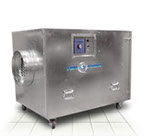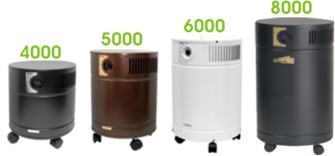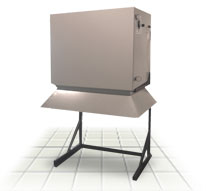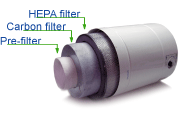http://www.airpurifiers-r-us.com/wildfiresmoke.html
What’s in smoke from a wildfire?
Smoke is made up of small particles, gases and water vapor. Water vapor makes up the majority of smoke. The remainder includes carbon monoxide, carbon dioxide, nitrogen oxide, irritant volatile organic compounds, air toxics and very small particles.
Is smoke bad for me?
Yes. It’s a good idea to avoid breathing smoke if you can help it. If you are healthy, you usually are not at a major risk from smoke. But there are people who are at risk, including people with heart or lung diseases, such as congestive heart disease, chronic obstructive pulmonary disease, emphysema or asthma. Children and the elderly also are more susceptible.
What can I do to protect myself?
- Many areas report EPA’s Air Quality Index for particulate matter, or PM. PM (tiny particles) is one of the biggest dangers from smoke. As smoke gets worse, that index changes -- and so do guidelines for protecting yourself. So listen to your local air quality reports.
- Use common sense. If it looks smoky outside, that’s probably not a good time to go for a run. And it’s probably a good time for your children to remain indoors.
- If you’re advised to stay indoors, keep your windows and doors closed. Run your air conditioner, if you have one. Keep the fresh air intake closed and the filter clean.
- Help keep particle levels inside lower by avoiding using anything that burns, such as wood stoves and gas stoves – even candles. And don’t smoke. That puts even more pollution in your lungs – and those of the people around you.
- If you have asthma, be vigilant about taking your medicines, as prescribed by your doctor. If you’re supposed to measure your peak flows, make sure you do so. Call your doctor if your symptoms worsen.
How can I tell when smoke levels are dangerous? I don’t live near a monitor.
Generally, the worse the visibility, the worse the smoke. One can use visibility to help gauge wildfire smoke levels and approximate air quality.
How do I know if I’m being affected?
You may have a scratchy throat, cough, irritated sinuses,
headaches, runny nose and stinging eyes. Children and people with lung diseases may find it difficult to breathe as deeply or vigorously as usual, and they may cough or feel short of breath. People with diseases such as asthma or chronic bronchitis may find their symptoms worsening.
Should I leave my home because of smoke?
The tiny particles in smoke do get inside your home. If smoke levels are high for a prolonged period of time, these particles can build up indoors. If you have symptoms indoors (coughing, burning eyes, runny nose, etc.), talk with your doctor or call your county health department. This is particularly important for people with heart or respiratory diseases, the elderly and children.
Are the effects of smoke permanent?
Healthy adults generally find that their symptoms (runny noses, coughing, etc.) disappear after the smoke is gone.
Do air filters help?
They do. Indoor air filtration devices with HEPA filters can
reduce the levels of particles indoors. Make sure to change your HEPA filter regularly. Don’t use an air cleaner that works by generating ozone. That puts more pollution in your home.
| rest of the article |
Featured Models - Home & Office Line

AirTube Portable Series
Desktop, Tabletop

4000 series- EXEC

5000 series- EXEC

AirMedic+ MCS

6000 series- EXEC
Contact Us
- Toll Free: 1-888-395-0330 or 1-800-626-0664 (North America- Continental USA and Canada)
- Fax: 1 (419) 710-9876
- Outside of North America: 1 (514) 421-0658
You may also fax to us your information request: eFax: 1 (419) 710-9876 - Contact Us Form - Click on this link to send us message














 Features a selection of compact air purifiers, ideal for environments where
Features a selection of compact air purifiers, ideal for environments where 






